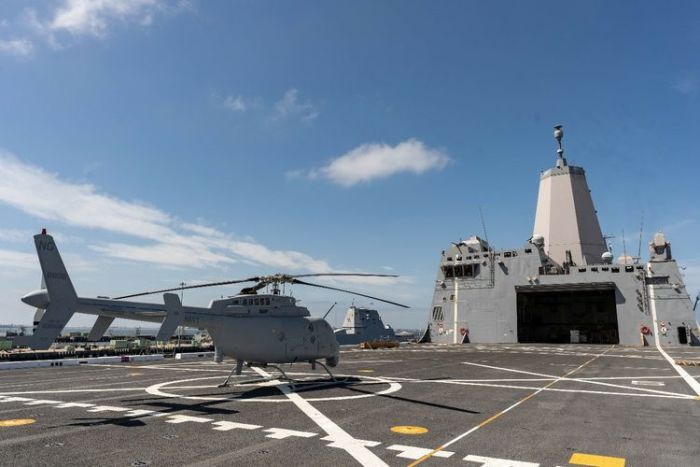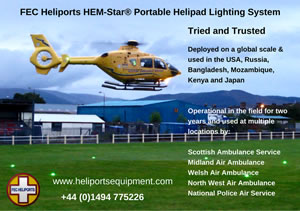ADi News2021-05-25 08:27:56
Northrop Grumman’s MQ-8C Fire Scout Completes Successful Fit Check aboard USS Anchorage (LPD-23)
Northrop Grumman MQ-8C Fire Scout, the US Navy’s only ship-based autonomous helicopter program, passes the initial fit check aboard the USS Anchorage (LPD-23) at Naval Base San Diego demonstrating the aircrafts’ suitability for the US Marine Corps’ amphibious warfare mission
MQ-8C Fire Scout, which has integrated the AN/ZPY-8 radar, is expected to reach Initial Operating Capability in this new configuration this summer and begin replacing MQ-8B aircraft on upcoming deployments.
There are two Fire Scout variants. The smaller MQ-8B Fire Scout has deployed on multiple frigates and is currently deployed on a Littoral Combat Ship (LCS). MQ-8B Fire Scout has also deployed to Afghanistan to support counter- improvised explosive device (IED) operations. This system has completed more than 16,600 flight hours over 6,200 sorties. The Navy has integrated a multi-mode maritime radar on MQ-8B and tested an onboard weapons capability, the Advanced Precision Kill Weapon System (APKWS). The MQ-8B Fire Scout has also demonstrated the ability to operate concurrently with other manned aircraft while operating at sea.
The MQ-8C Fire Scout is the Navy’s next-generation autonomous helicopter. The MQ-8C Fire Scout’s airframe is based on the commercial Bell 407, a mature helicopter with more than 1,600 airframes produced and over 4.4 million flight hours. Combined with the maturity of Northrop Grumman’s autonomous systems architecture, Fire Scout meets customer requirements for ship-based and land-based autonomous systems. It also has the ability to autonomously take off and land on any aviation-capable ship and from prepared and unprepared landing zones. This enhancement significantly increases range and endurance (more than double) and payload capacity (more than triple). The MQ-8C has completed developmental testing and is ready to deploy.
For more information contact:

